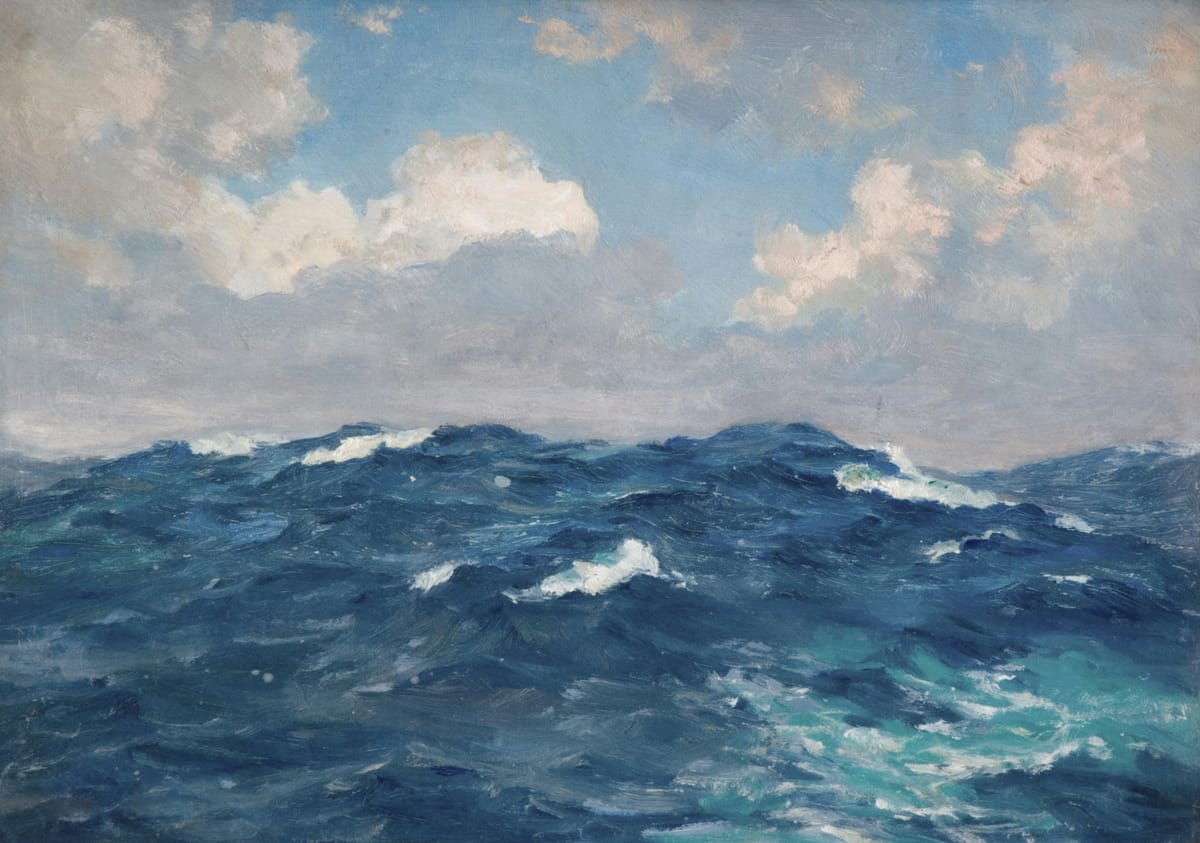That Fairness is a Quality of Love
Fairness is the quality of love that does not subjectify or objectify but enfolds as the father did his prodigal son. In it is the love that radiates and the love that soothes, the love that comes from the ocean and the sun

“Empathy is the nature of the intoxication to which the flaneur abandons himself in the crowd.”
Walter Benjamin, The Flaneur, 55.
Egality is the well of love, and this great ocean of emotion springs always, at first, from a small trickle in rocky places. This trickle is the human, the jolt of silver joy at having life displayed before your senses, and then it is the river that rushes, first in manic flood and then in depressive drought along the valley of life, curving through towns choked with shopping carts, fast food, plastic toys, and then over the tatami plains and tablelands beside great souls of trees, nurturing friendly tributaries, resting and contemplating in an oxbow or a dam, and even completely mingling with another’s flow in the most pleasurable form, true human love. It is precisely because the river knows itself, knows its source and its journey, that it knows to love is to take a place, to fulfill a path that is decided incrementally in actions and desires and loves. You may ask why I began with this tantalising ocean of emotion only to drop it, but I do not. Heraclitus was perfectly right when he said you do not put your foot into the same river twice, for while the river is ever-changing it does so in ignorance of the pure emotion, the pure life, to which it is always barrelling. A river is a teleological object; as long as it will move to the oceanic a river it will be. The ocean is pure emotion because it is the hibernation of flowing souls, bound together and in perpetual motion but no longer flowing nor directing nor even, in our directed sense, loving. In its pure love, the river is dissolved and yet it is also affected. For what is the ocean but a great kettle, and the arc of change but the Sun.
In this great cycle what is love but a service to the shape of time in the world, the arrangement of atoms, the plurality of every system. The ocean is the end of love in pure life, pure emotion, because it is pure plurality, exemplified.
If we are well-watered, we can only flow onward, faster and stronger with the pure intention of loving as a secondary impression of the emotion we do not understand but suspect as a blank that we will end in. And so the Sun limits us, by denying us perpetual flood even while providing us with rain. This is what Ruskin fails to see: that if human beings are not the source of value, but value in themselves, that human endeavour to the oceanic is not a conflict within or between rivers, or even a conflict at all so much as a mutual declaration between the river and every other thing in the world alongside it. Rivers do not form lines of wealth over the land but lines of life. A river is not a relay, nor a parasite, but a path through time and space. And what great shapers these forces are, even down to the minute scratching of the water rat. We cannot conquer our neighbours completely, us rivers, though they may conquer us. And here is the danger of loving with emotions purely and endlessly as the ocean. They are too much for the land and the million cycles that go along with us. We understand but a handful we’ve found in our flight, from steaming sea back as food to our later selves, and we forget them the moment we smackdown on the flow. We know there are great lands far beyond the rivers of every continent, some a mossy stone and others as grand and empty as the Sahara. Yet even in these, we suspect, is the same well from which our family springs, and the same love that is service to the ignorance of the end. What is the end? Here I am being deliberately vague so that each reader can interpret the oceanic in their own way. An existentialist might read it as death, and a Christian as the Church. Every interpretation is as useful to the river, so long as it acknowledges the plurality, the awesome plurality, the flux of time and the inner, secret quivering of the world as we see it. Knowing that, how can we help but care for one another. Fairness is nothing monetary, nor even laborious, it is the simple recognition of what you might call the spiritual preconscious, the essential connectedness of human beings, the plane of us which is time, running onward. That love toward other beings is the critical imperative of the human as it is of the river toward the Earth is, in modernity, an unassailable invective. Freud’s mistake was to consider the oceanic a regression to childhood ignorance of other minds, when it is a renewal of the collected purality of being.
I cannot support that fairness is the opposite of love, where it is truly the beginning of it. This is not a genus, nor a genesis, but a beginning as the root once was, now particularised by the whole. Love is not created out of partiality, but develops into it. Before we notice those we love’s habits, quirks, and peculiarities we first apprehend them as a fellow human being, as another flawed individual lost at sea. Why else is fast love anything but the widest, rolling feeling? This is not to discount the partiality of love, and especially the partiality of romantic and sexual love, but just as the sapling is in the tree so too is the most genuine, companionable love of two humans the precious renewal of the same tiny tug that started it all.
Fairness is the call of love, and even when it is unanswered it continues, and so becomes visible as the love that is its source. Yet without the call, there is too much the likelihood that passion will fade and love will become an aftershock and not a conversation. How great the love I have for every human being because I know in their commonality to myself that they have dreams, hopes, desires and struggles and in essence share their common Being with myself and that in such a Being lies the part of oceanic feeling that is closed and opened, distanced and de-distanced between any being and another being.
I sense in the feeling, however well-intentioned, that to love without egality is to be kind, and charitable, and honest and, in general, loving to all those whom one loves, but to do so in some small way subjectifies them. We might agree with Althusser that to hail an-other is to revivify the difference in the two beings, to constitute a receiver. And yet as any person who has been called by someone they love, however slightly, knows, to be hailed is a degenerated call. To all of the above the call adds life’s plurabelle force, striving not up or down but from one side of land to another, ever on.
To think of each person’s due too much is, correctly, a perversion of love, a meanness of spirit and a retardation of the pure emotion that drives us onwards in flow and hope and care. To be miserly and piddling is the anaemic flow of a river polluted, enclosed and forgotten. Yet to eschew the base, essential due of every human being, every soul, and the end that wills or drives them on, is to eschew the pure emotion and plurality of the oceanic itself, and with it the effects of the sun, and land and ocean and a million other cycles of our world that affect the will of each river. To love must include the part of fairness, the part of the unfortunate and the part of the flawed. To be a fellow traveller, to sight a trickle on a plateau, to share a valley, to empty into one sea or to mingle waters with another, in the approximate closeness of love, is to call one another and to await a call back. Yet if we adopted the view that as Christ came to call sinners so we call one another, then there remains the floating water, the irradiant sea, the oceanic in the place that does not contain it. To love is to call and await but not to stop: without calling, as without walking or in this case, flowing, we do not serve the oceanic and so deny the fact of our existence. If I understood evolutionary biology I would mention it here. So therefore the act of love, freely given, is the call of love, the beginning of love as a root, but not a genus. To call solo, with no expectation of return, is the beginning. But with no return the root will not grow, and if there is a human that can go through life calling forever in love and receiving nothing back then that is a human that has never experienced rain or dry and the passing, seasonal flow. Because we are all alike and we are all deeply flowing, everyone deserves love, and fairness to all ensures that all have their place within and through this flow in the service of the ocean and the sun. For if we are too loving in the oceanic style, then how much might we dismiss or conquer the lesser tributaries, the polluted ones, the sad and the drying, the slow. Why, when we can lift them as incarnations of our collective own? Fairness is the quality of love that does not subjectify or objectify but enfolds as the father did his prodigal son. In it is the love that radiates and the love that soothes, the love that comes from the ocean and the sun, who show such fairness to let us all share this world they could so easily destroy.
Disclaimer:
The views expressed in guest contributions do not necessarily reflect the official positions of Ninth Heaven. We deeply value the insights and creativity of all our contributors. Ninth Heaven exists as a platform for thoughtful discourse and the meaningful exchange of ideas, fostering cultural and spiritual exploration with care, depth, and integrity.
